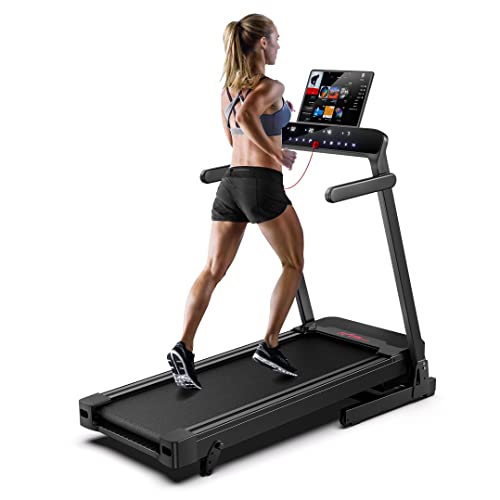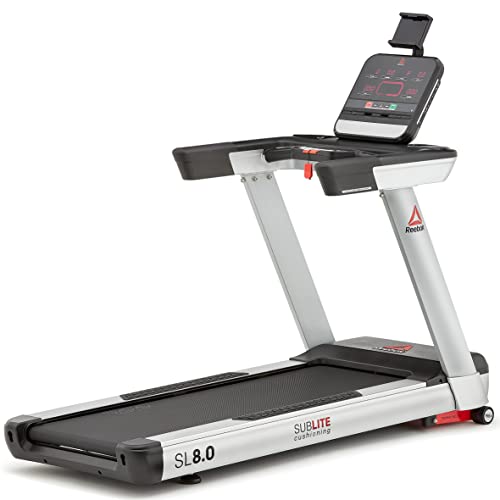You'll Never Guess This Treadmill Incline Workout's Benefits
페이지 정보

본문
 How to Use a Treadmill Incline Workout
How to Use a Treadmill Incline WorkoutMany treadmills allow you to alter the degree of incline. Uphill walking at a steep angle is more efficient than walking on a flat surface.
 This is a low-impact workout that can be an alternative to running for people with joint problems. It can be performed at various speeds and easily altered to achieve your the fitness goals.
This is a low-impact workout that can be an alternative to running for people with joint problems. It can be performed at various speeds and easily altered to achieve your the fitness goals.Selecting the correct slope
It doesn't matter if you're a beginner on the treadmill or an experienced professional, incline-training provides a myriad of opportunities to spice up your cardio workouts. The incline feature of a treadmill can simulate running outdoors, with no the strain on joints. You'll burn more calories, increase endurance, strengthen your lower leg muscles, and increase your heart rate by increasing the intensity of your runs or walks. You can easily include incline training into your cardio sessions as part of an HIIT or steady-state exercise.
When walking at an angle, you should make sure to take longer steps and keep your arms pumping. In general, you should tighten your arms when you are on an angle of 15% and relax your arms at a 1% incline. This will improve your walking technique and reduce the risk of injury. Also, be careful not to lean forward too much when walking on the top of a hill, as this can cause back pain.
If you're new to treadmill workouts on incline, it is an ideal idea to start at a low gradient. Before you begin any incline, make sure that you can comfortably walk for 30 minutes at a steady speed on a flat ground. This will prevent injury and will allow for gradual growth in fitness.
Most treadmills allow you to set an incline when you're working out. Certain treadmills don't allow users to change the incline. You'll need to stop your workout to manually adjust the deck to your desired setting. This can be a pain particularly if you're doing interval training in which the incline is changing every few minutes.
It's important to be aware of your HRmax when you're performing a HIIT exercise. This will allow you to know when you have attained your target heart rate and it is time to increase or decrease your speed. Similarly, if you're doing an exercise that is steady-state, it's important to check your heart rate frequently throughout the exercise and keep it within 80-90 percent of your maximum heart rate.
Warming up
Treadmill workouts are a great way of burning calories, but adding an incline increases the intensity and provides additional benefits, such as functional strength training. If you're brand new to running or walking on an incline it is crucial to warm up prior the intensity of your treadmill workout. This will reduce the risk of injury and prepare your muscles for the tough work that is to come.
Warming up with 2 minutes of vigorous walking is ideal for beginners. Once you've warmed up then you can begin jogging for about 4 to five minutes. You can continue to warm your legs by adding a two-minute walking at a fast pace after your run. Then, you can move on to a full body workout that incorporates bodyweight exercises such as walking lunges and squats.
A full-body workout is beneficial because it targets multiple muscle groups. It also helps to build the strength of your core. It's also a great way to increase your heart rate without pushing yourself too hard on the treadmill. Ask your fitness instructor for suggestions when you're unsure of the method to choose.
Include an incline to your treadmill exercise. This will provide you with the most realistic exercise surface and increase your VO2 Max, which is the maximum oxygen intake. Walking on an incline will help you prepare your muscles for walking on real-world terrain and reduce the impact to your knees.
Treadmill incline workouts can target different leg muscle groups and are excellent for toning your lower body. Walking at an angle can increase the range of movement in your arms and strengthen your shoulders and chest.
A high-intensity treadmill workout is a great option for beginners and is ideal for those who wish to test themselves and attain higher heart rates without the pressure of pushing their bodies too far. It is crucial to keep track of your heart rate during a vigorous smallest treadmill with incline workout, and be sure to stretch afterward. Stretching will help prevent tight muscles and help recover your body from intense exercise.
Intervals
When you use a treadmill exercise with an incline, you need to increase the intensity using intervals. Interval training is a tried and tested method to burn calories and build muscle faster. It involves alternating high-intensity exercise with lower intensity exercises, like an easy jog or walk. This type of workout will aid in increasing your VO2 max which is the highest amount of oxygen that your body can take in during exercise.
To get the most value out of your treadmill incline workout it is recommended to incorporate an equal amount of walking and jogging. This will allow your body to recover between high-intensity workouts and help prevent injuries. Warm up before you begin the intervals.
The first step in designing the treadmill incline workout is to determine the desired heart rate. It should be between 80 and 90 percent of your client's maximum heart rate. You can then decide which incline and speed to use for each interval.
You can design your own interval programs or use the built-in programs that come with your small space treadmill with incline. For instance begin with a 3 minute interval at a gentle jog and gradually increase the incline. When you've reached your desired heart rate, you can continue to jog at a comfortable speed for the remainder of the exercise.
You can then jog with an incline between 10 and 15 percent, and run for 3 to 6 times. After that, you can return to the jog at a moderate pace for a minute of recovery. Repeat this process for five to eight intervals.
If you don't feel at ease using a treadmill consider a walking or running incline workout. This will test your balance and work your leg muscles more than a treadmill. It's crucial to examine your ankles and knees for any problems that could be the cause before trying this type of workout.
You can also add dumbbell exercises to your incline workout to increase muscle building activity. You can, for example, do dumbbell rows and lateral raises during your rest intervals in order to make your exercise more challenging.
Recovery
Most treadmills offer an incline feature that lets you to simulate walking and running uphill. You can adjust the slope of your treadmill to make it more challenging or add intervals that have more intensity. This kind of exercise is perfect for those looking to increase their cardio levels while burning calories without worrying about their joints.
This exercise stimulates various muscles throughout the body, which aids to increase the amount of calories burned. This may strengthen the posterior chain which includes the glutes, hamstrings and muscles of the calf. Inline treadmill with incline for small spaces walking also exercises the muscles that form the calves, including the smaller tibialis and peroneal anterior muscles. This can improve the flexibility and strength of the muscles and is a good alternative to jogging if aren't comfortable with high-impact exercises.
If you're just beginning to learn about incline walking, start out with a lower incline and gradually increase it over time. This will help prevent joint pain and help you reach your fitness goals faster. Be aware of your body. Stop exercising if there what is 10 incline on treadmill any discomfort or pain.
To get the most out of your incline workout, it's important to warm up for five minutes of level or gentle walking on an incline. Also, don't forget to keep track of your heart rate throughout the exercise to ensure that you remain within your target heart rate zone.
After your first interval, lower the gradient by 0% and walk briskly for 3-4 minutes. This recovery phase will help you bring your heart rate back to normal and prepares your body for the next climb.
Repeat this procedure for the rest of your training on an incline. Keep the ratio of work to rest as close to 1:1. This will help you increase the intensity of your workout and achieve your desired results in a shorter period of time. Stretch your muscles after exercising to avoid tight muscles and issues with flexibility.
- 이전글The Mysite Mystery 24.09.01
- 다음글What's The Job Market For Inattentive ADHD Medication Professionals Like? 24.09.01
댓글목록
등록된 댓글이 없습니다.

